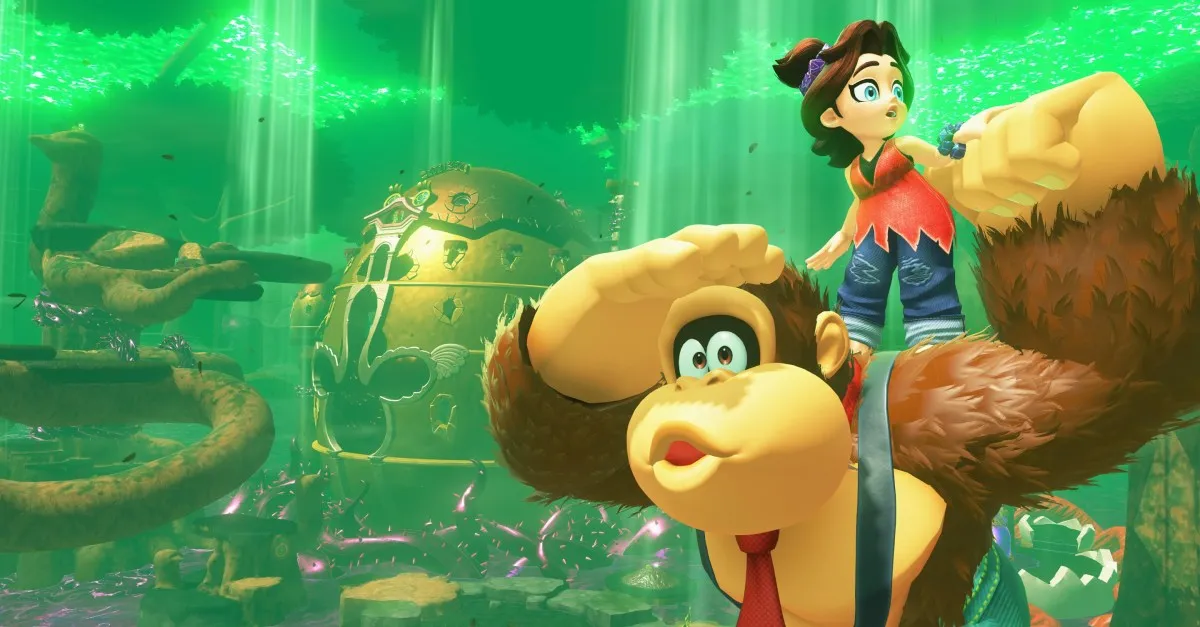
The gaming landscape has shifted dramatically with the release of Donkey Kong Bananza, the first 3D Nintendo platform game developed after the critically acclaimed The Legend of Zelda: Breath of the Wild. This groundbreaking title has achieved the remarkable feat of outselling Super Mario Odyssey, the flagship Mario game of its generation, thereby solidifying Zelda's influence on the Nintendo Switch. With Bananza, the expectations for the Zelda series and Nintendo's core design principles have been completely redefined.
Produced by Kenta Motokura, the director of Super Mario Odyssey, Donkey Kong Bananza reflects a thoughtful integration of ideas inspired by the Zelda team. As I delved into the game for a few hours and reached the second main area, it became evident that the developers embraced the challenge laid down by Zelda, crafting a unique experience that retains the essence of a classic Donkey Kong title. This is not just another Mario game; it’s a vibrant and entertaining return to form for the beloved ape. Notably, this is the first time in two decades that Nintendo has developed a Donkey Kong game in-house in Japan, making its release even more significant.
In Donkey Kong Bananza, players are treated to a visually stunning showcase of destruction, as the lovable character DK bulldozes his way through the game world. From punching through walls to tearing up the ground, every detail is designed to emphasize DK's physical prowess and endearing personality. The game features playful one-word dialogue options and satisfying sound effects, such as the thwack of menu buttons breaking apart when selected. This new direction from Nintendo introduces a delightfully chaotic and entertaining atmosphere, marking a shift toward a more vibrant and reckless gameplay style.
Unlike previous entries, Donkey Kong Bananza is not afraid to embrace complexity. The game features a broad moveset and an intricate control scheme that players may need time to master. However, all of DK’s moves are available from the outset, a design philosophy reminiscent of both Breath of the Wild and its sequel, Tears of the Kingdom. This emphasis on player freedom allows gamers to experiment and find their own solutions within the game’s structure, a significant departure from Nintendo's traditional design principles.
In a bold move for a platform game, Bananza allows players to climb nearly any surface, a mechanic that feels revolutionary within this genre. DK's destructive capabilities encourage exploration and the discovery of hidden secrets. However, while players are granted freedom, the game’s critical path prioritizes impact over problem-solving, with environmental elements designed to respond specifically to DK's attacks.
The game is structured around various subterranean Layers that players descend through on their journey to the planet's core. Each Layer presents a compact, free-roaming environment reminiscent of the pocket universes found in Super Mario Odyssey. The stunning pastel-colored visuals borrow heavily from the latest depiction of Hyrule, creating an enchanting backdrop for gameplay.
One of the more surprising features is the inclusion of a skill tree, which represents a notable evolution in Nintendo’s approach to character progression. Players earn skill points by collecting giant crystal bananas, which serves as a rewarding incentive akin to Super Mario Odyssey’s Power Moons. The catchy jingle that accompanies each banana collection, featuring the memorable phrase "Oh, Banana!", adds to the joy of exploring the game world.
In Donkey Kong Bananza, three distinct aspects of Nintendo coexist, sometimes clashing and other times harmonizing. The first is the craftsmanship seen in every 3D Mario game, characterized by meticulously designed worlds filled with secrets and challenges. The second is the innovative spirit of Breath of the Wild and Tears of the Kingdom, which prioritize player freedom and advanced programming techniques. Finally, there is the nostalgic, mischievous Nintendo of the 1980s, embodied by Donkey Kong himself, who brings a sense of wildness and unpredictability back to the franchise.
In conclusion, Donkey Kong Bananza marks a significant shift in Nintendo's design philosophy, blending the charm of classic gameplay with modern innovation. This game is not just a nostalgic return; it is a bold new chapter for one of gaming's most beloved characters.